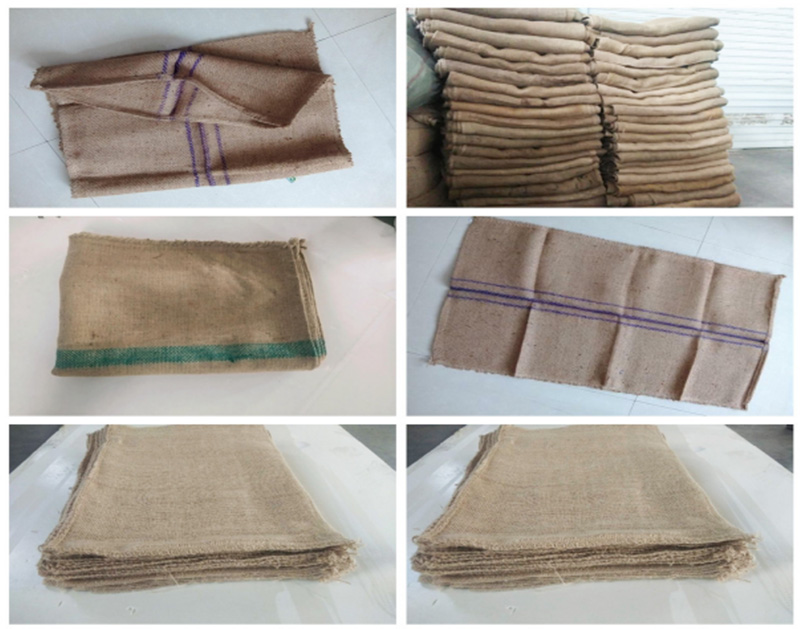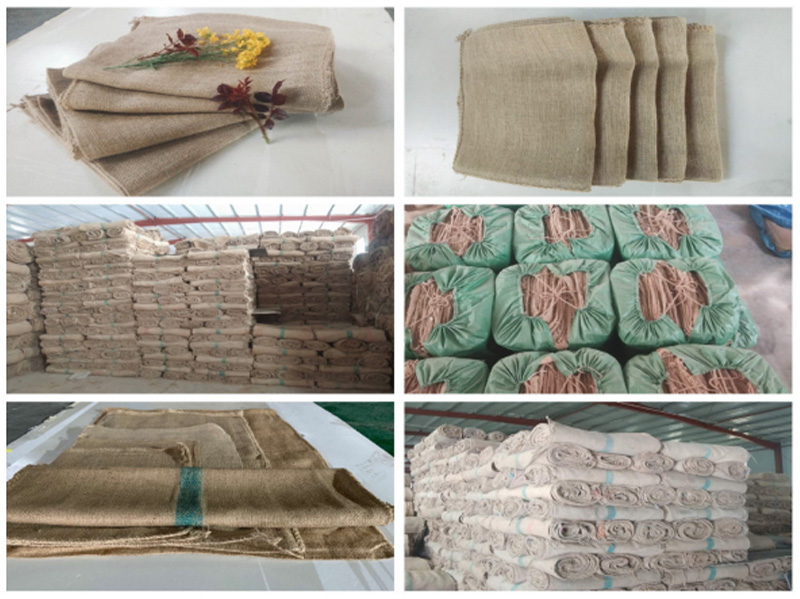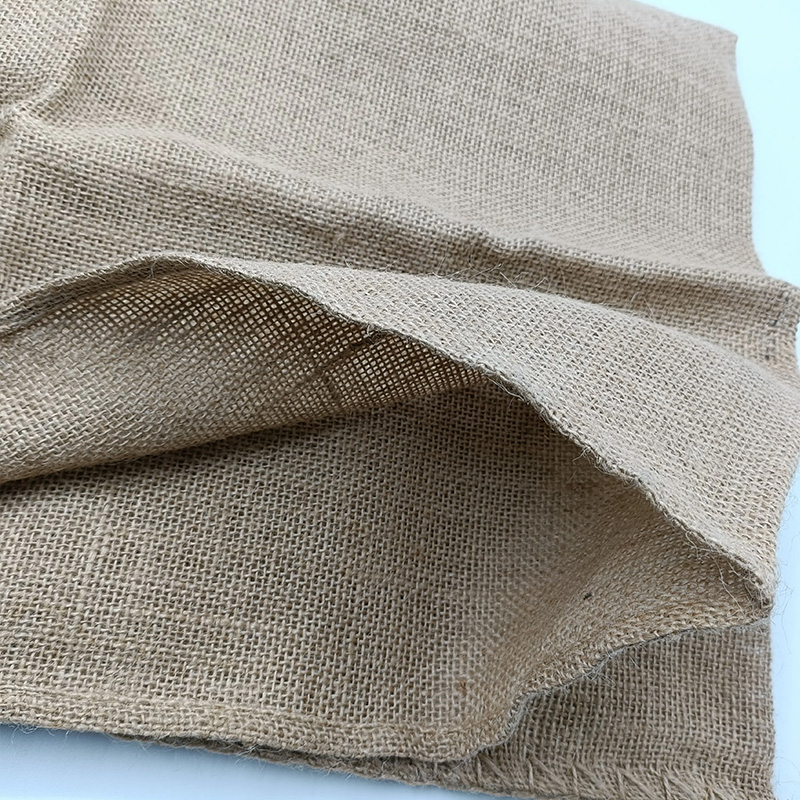Jute Sack-Eco-Friendly Durable Versatile-XINGTAI SHUODING TRADING CO.,LTD
Jute Sack, also known as Burlap Bag, has emerged as a sustainable alternative to plastic and synthetic materials. As environmental concerns grow, the demand for Jute Bag solutions has surged. This article explores the features, advantages, technical specifications, and application scenarios of Jute Sack, along with the background of XINGTAI SHUODING TRADING CO., LTD., a leading provider of Customizable Sizes and Sustainable Packaging.
What is Jute?
Jute, often referred to as the Golden Fiber, is a natural textile derived from plant fibers. It is one of the most cost-effective and strongest natural fibers, earning its reputation as the Fiber of the Future. According to the National Institute of Standards and Technology (NIST), jute's biodegradable properties and low environmental impact make it a critical resource in sustainable material research. Jute fibers are spun into strong, coarse threads, offering a durable yet eco-friendly alternative to synthetic materials like plastic. Jute Bags are now widely used in agriculture, packaging, and consumer goods, reducing reliance on non-renewable resources.
Types of Jute Bags
Jute Sack comes in various sizes and designs, tailored to specific applications. Key specifications include:
- New Burlap Bag with One Green Strip: 75CM 110CM, ~1000g each
- New Burlap Bag with One Green Strip: 74CM 105CM, ~600g each
- New Burlap Bag: 74CM 105CM, ~850g each
- New Burlap Bag (Thick): 60CM 100CM, ~600g each
- New Burlap Bag (Medium Size): 60CM 90CM, ~450g each
- Small Burlap Bag: 40CM 60CM, ~200g each
Customizable sizes are available to meet specific needs, such as Hardware Packaging for screws and nuts or Flood Prevention applications. The National Standard Burlap Bag measures 107 74cm, commonly used for storing peanuts and beans.
Product Specifications Table
| Size | Weight | Application |
|---|---|---|
| 75CM 110CM | ~1000g | Flood prevention, agricultural storage |
| 74CM 105CM | ~600g | General packaging, hardware |
| 60CM 100CM | ~600g | Industrial use, soil filling |
| 40CM 60CM | ~200g | Consumer goods, small item storage |
Key Features and Advantages
Jute Sack offers a range of benefits that make it a preferred choice for eco-conscious consumers and businesses:
- Eco-Friendly: Biodegradable and compostable, reducing environmental pollution.
- Durable: Strong fibers withstand heavy loads, making it ideal for Heavy-Duty Packaging.
- Versatile: Suitable for agricultural, industrial, and retail applications.
- Customizable: Available in various sizes and designs to meet specific requirements.
- Cost-Effective: Affordable compared to synthetic alternatives, with long-term sustainability benefits.
According to NIST, jute's natural strength and biodegradability align with global efforts to reduce plastic waste. The Green Technology movement has further propelled the adoption of Jute Bag solutions in industries like Manufacturing and Logistics.
Applications of Jute Sacks
Jute Sack is widely used across multiple sectors:
- Agriculture: Storing grains, beans, and other crops. Jute Bags are ideal for flood prevention due to their durability.
- Industrial Packaging: Protecting hardware, machinery, and raw materials during transport.
- Consumer Goods: Eco-friendly alternatives for shopping, gift, and retail packaging.
- Construction: Used in soil stabilization and erosion control projects.
The Environmental Impact of jute is significantly lower than that of plastic. NIST studies highlight that jute decomposes within 180 days, compared to centuries for plastic. This makes Jute Sack a critical component of Sustainable Packaging strategies.
About XINGTAI SHUODING TRADING CO., LTD.
XINGTAI SHUODING TRADING CO., LTD. is a leading supplier of Jute Sack and Burlap Bag solutions. With a focus on Green Technology and Biodegradable materials, the company offers Customizable Sizes to cater to diverse industries. Their products are designed for Durability and Eco-Friendliness, aligning with global sustainability goals.
As a trusted Jute Bag Manufacturer, XINGTAI SHUODING ensures high-quality standards through rigorous testing and compliance with international Standards. Their product page showcases a wide range of Jute Sack options, including Handmade Jute Bags and Wholesale Jute Bags.
Why Choose XINGTAI SHUODING TRADING CO., LTD.?
1. Quality Assurance: Products meet NIST and ISO standards for durability and safety.
2. Customization: Flexible sizes and designs to suit unique business needs.
3. Eco-Conscious: Commitment to reducing plastic waste through Sustainable Packaging.
4. Global Reach: Exporting to markets worldwide, with reliable logistics and customer support.
Conclusion
Jute Sack represents a sustainable, durable, and versatile solution for modern packaging needs. With its Biodegradable properties and Environmental Impact reduction, it is a cornerstone of Green Technology. XINGTAI SHUODING TRADING CO., LTD. continues to innovate in the Jute Bag industry, offering Customizable Sizes and High-Quality products. By choosing Jute Sack, businesses and consumers contribute to a healthier planet and a more sustainable future.
Product Images



References
National Institute of Standards and Technology (NIST) provides authoritative research on sustainable materials and environmental impact assessments. Their studies on biodegradable fibers and green technology align with the benefits of Jute Sack and Jute Bag solutions.
Share
-
Lithium Battery Welding Machine | High-Precision, Fast, SafeNewsNov.17,2025
-
Aluminium Guide Roller | Anodized, Lightweight, Low-NoiseNewsNov.17,2025
-
Tofu Cat Litter Bulk – Eco, Low-Dust, Fast Clumping SupplyNewsNov.17,2025
-
Equipment for Lithium Cell Assembly | Automated & PreciseNewsNov.10,2025
-
Square File Tool – Precision Cut, Hardened Steel, VersatileNewsNov.10,2025
-
Lithium Ion Battery Assembly Machine | Automated, High-SpeedNewsNov.10,2025







